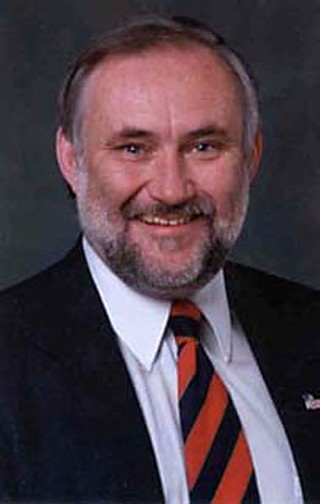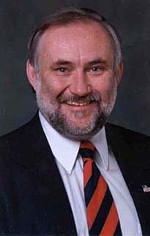Memory Lapse?
Former district attorney doesn't remember much about prosecuting an innocent man for murder
By Jordan Smith, Fri., Dec. 9, 2011
Former Williamson County District Attorney Ken Anderson, now a district judge, doesn't really recall anything related to his 1987 prosecution of Michael Morton – not what he did or knew back then, nor what he said or told to others, nor what other WilCo officials might have said to him recently about whether he withheld evidence that countered the state's contention that Morton was responsible for the 1986 slaying of his wife.
Morton was released from prison this year after 25 years behind bars for Christine Morton's murder, a crime he did not commit. Another man, Mark Alan Norwood, has now been arrested and charged with the crime; his DNA was found on a bandana covered with Christine's blood, recovered not far from the couple's home in Georgetown where the killing occurred. Norwood's DNA has also been tied to the 1988 murder of mother Debra Masters Baker, who was also bludgeoned to death in her Austin home.
At issue now is whether Anderson supplied Morton's defense with key information that would challenge the state's assertion that he killed his wife – including the transcript of a conversation after the murder between Christine's mother and the Morton's young son, Eric, who said his father was not home when the murder happened; information that Christine's stolen credit card was used in San Antonio two days after her death; and that someone after her death cashed a check made out to her.
During the long and seemingly quite testy deposition by Morton's appeals attorneys, including the Innocence Project's Barry Scheck, Anderson sounded like he was trying to avoid answering questions straight on, and when Scheck used text from Anderson's 1997 book, Crime in Texas: Your Complete Guide to the Criminal Justice System, which uses the Morton case as an example of how thoroughly he would investigate a case and review its evidence, Anderson seemed hostile, telling Scheck that the book was for "laypeople" and that in writing a book – apparently even a nonfiction one – you "write ... with a little bit of liberty." In fact, he later tells Scheck that in writing about the Morton case, his book was "hyperbole based on fact." Unfortunately for Morton, Anderson's hyperbole was responsible for his wrongful conviction – and it's still unclear exactly what Anderson knew about those key pieces of evidence and what he did with them.
Anderson says he doesn't remember any of the three key pieces of evidence – information that former WilCo Sheriff's Sgt. Don Wood had said in his deposition would have been available to Anderson. Wood and former prosecutor Mike Davis, who second-chaired the Morton case with the D.A., both called Anderson a meticulous prosecutor. Indeed, Davis said that in his experience, there wasn't a piece of evidence that Anderson wouldn't have known about. Anderson, however, apparently disagrees. "I wasn't concerned that I had violated Brady," he said, referring to the legal duty to turn over to the defense exculpatory information.
Nonetheless, it remains unclear whether Anderson, Davis, Wood, or current D.A. John Bradley – who actively blocked Morton's request for DNA testing of the bandana – did engage in any misconduct related to Morton's wrongful conviction. Anderson, Davis, and Bradley are the subject of at least two grievances to the State Bar of Texas related to their performance in the case; according to a set of grievances filed with the bar by Julie Oliver, executive director of the Texas Coalition on Lawyer Accountability, all three violated a host of legal ethics rules and participated in possible criminal acts by taking part in the suppression and concealment of "evidence that tended to negate Mr. Morton's guilt." (To read more about the grievances, see "Group Accuses Morton Prosecutors of Gross Misconduct," Newsdesk blog, Nov. 29.)
Got something to say on the subject? Send a letter to the editor.










